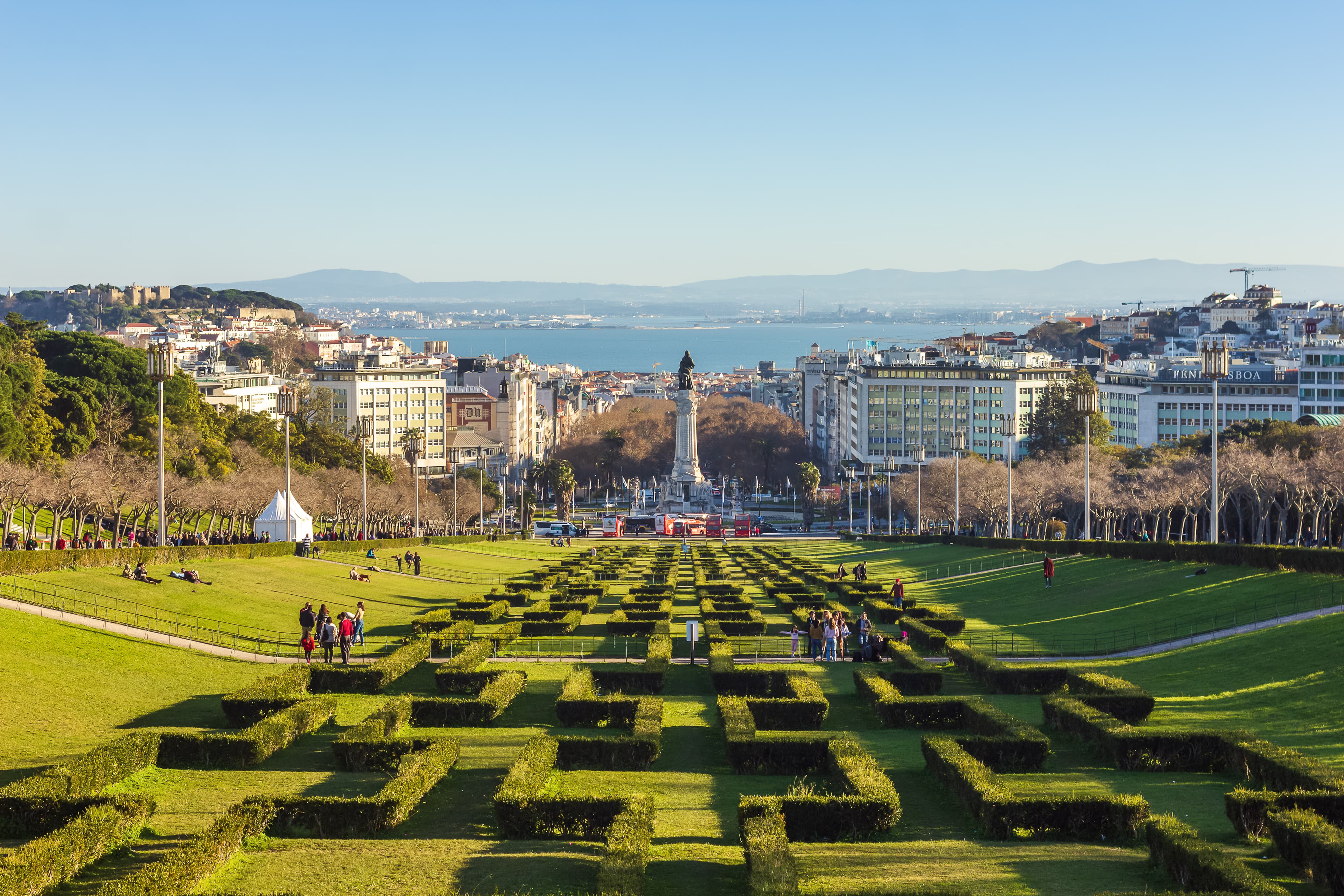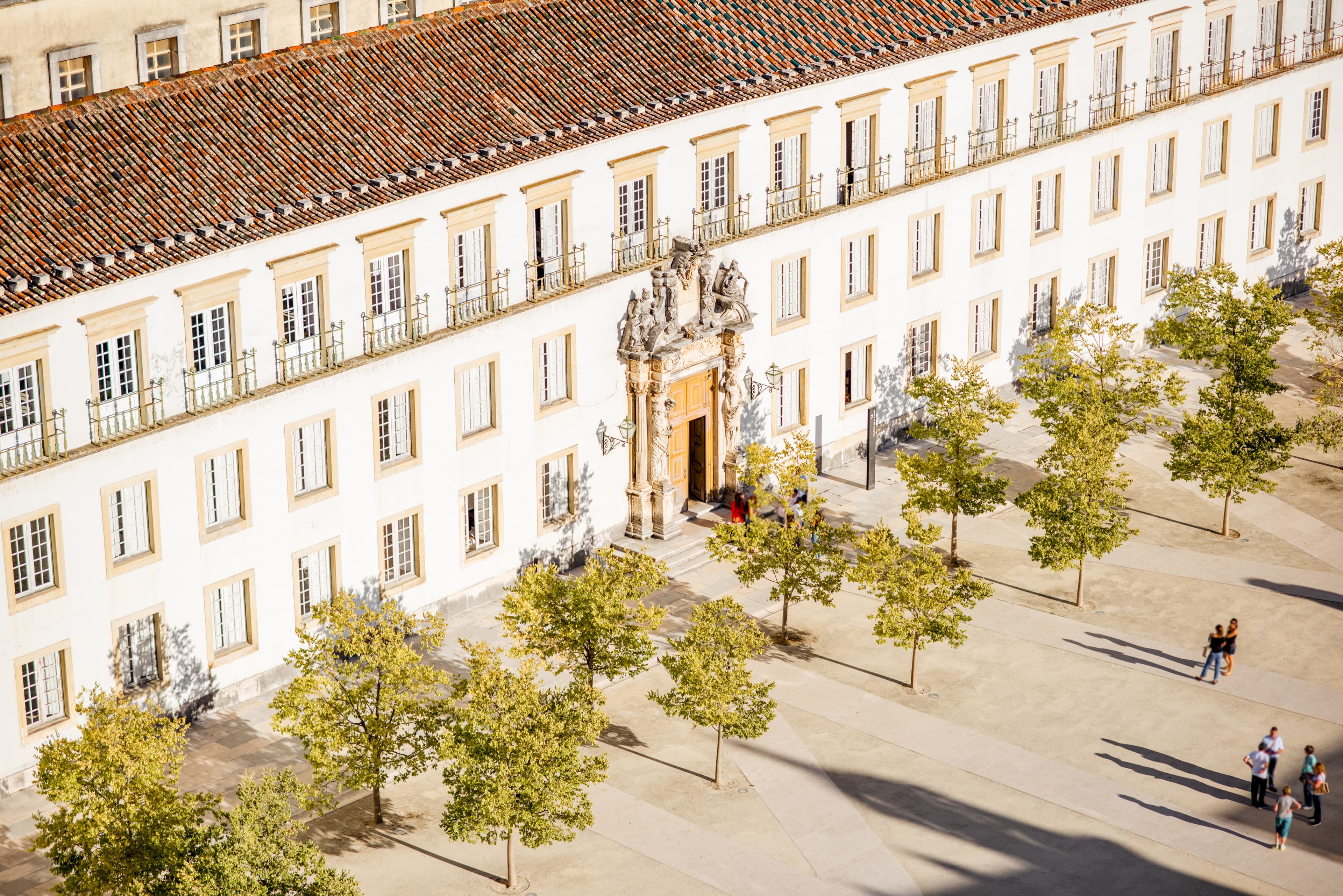Summary
A temporary residence permit grants the right to live abroad for a set number of years. It is often tied to employment, university enrolment, family reunification, or investment.
Over time, one may become eligible for a permanent residence permit. This status allows indefinite stay and typically comes with fewer restrictions.
This article explains the key differences between temporary and permanent residence permits, covering how they work, who qualifies, and why they matter for those looking to settle abroad.
Residence permit vs permanent residence: an overview
A residence permit, or RP, is a temporary status that allows a foreign national to live in a country. It is valid for at least one year and can often be extended if the holder continues to meet the conditions under which it was issued.
In contrast, permanent residence, PR, allows a person to stay in a country indefinitely, without needing renewals.

Vladlena Baranova,
Head of Legal & AML Compliance Department, CAMS, IMCM
The term “permanent residence” has two meanings: legal and personal.
In a legal sense, permanent residence is a status granted by the government that allows a person to live indefinitely in a country where they are not a citizen. This status comes with certain rights and obligations.
In a personal sense, permanent residence refers to the place where a person primarily lives for an extended period. It distinguishes a main home from temporary stays or secondary residences. Unlike the legal definition, a person can live in a country permanently even if they hold only a temporary residence permit.
Application process
There are more than 10 ways to obtain a temporary residence permit. Common reasons include employment, studying, family reunification, and investment.
Fewer pathways lead to permanent residency. In most cases, applicants must first hold a temporary residence permit and live in the country for 3 to 5 years. However, some countries offer permanent residence by investment. For example, in Malta, the minimum investment is €169,000, while in Cyprus, it is €300,000.
Card features
Both temporary and permanent residents receive a separate document, usually a plastic card, which serves as an ID.
In many countries, including all EU states, the UK, the US, and Canada, residence permits are biometric. In some African and South American countries, they may be non-biometric.
Maintaining status
Temporary residents usually must stay in the country for at least 183 days per year. However, investors often have fewer restrictions. In Portugal, they need to stay only 7 days per year, while Greece and Italy impose no minimum stay requirements.
Permanent residence does not always require full-time residence. However, some countries revoke it if the holder is absent for too long. In Hungary, permanent residence can be revoked if the holder leaves for more than six months without notifying authorities.
Some countries require a registered address. In Malta, investors with permanent residence do not need to live there but must rent or own property for the entire duration of their residency.
Renewal
Temporary residents must renew their permits regularly, proving they still meet the initial requirements. Employees must confirm ongoing employment, while investors must show they have maintained their investment.
Permanent residents do not need to renew their status but must renew their residence permit card—typically every five to ten years—to keep their documentation current.
Residency vs visa
A visa differs from both temporary and permanent residence permits. It is generally issued for short-term visits. For example, foreign nationals need a Schengen visa to visit the Schengen states.
A visa is usually a sticker on a passport page but can also be a stamp, insert, or separate document.
Visas fall into two categories:
-
immigrant visas—can be converted into a residence permit after entry;
-
nonimmigrant visas, issued for tourism, business, or short-term stays.
7 benefits of a residence permit and permanent residence
The rights and benefits of temporary and permanent residence permits vary by country and permit type.
1. Legal stay
A residence permit grants the right to live legally in a country for a set period. Many permits also allow unrestricted entry, even when borders are closed to tourists.
For investors or those not planning to reside full-time, a residence permit can serve as a safety net in uncertain times.
Permanent residence goes a step further by allowing individuals to stay indefinitely without reapplying, offering long-term stability and flexibility.
2. Work opportunities
Some residence permits allow full-time employment, whereas others either do not allow work or impose restrictions. Work permits grant the right to full-time employment in the country, student permits usually allow part-time work, and medical treatment permits typically do not grant the right to work.
Permanent residents can generally work without restrictions, though there are exceptions. For example, those who obtain Cyprus residency by investment are not allowed to be employed in Cyprus.
3. Access to healthcare
Temporary residents often do not have automatic access to public healthcare and must rely on private insurance. In some EU countries, they can access public healthcare by contributing to the social security system.
Permanent residents typically have access to public healthcare but may need to contribute to a national insurance program.
4. Access to education
Dependent children of both temporary and permanent residents can usually attend public schools.
Public universities are generally open to all residents, but permanent residents often receive better terms. In the US and Canada, they pay lower tuition fees. In some countries, such as Germany and Norway, both temporary and permanent residents can study for free.
Temporary residents may not qualify for certain financial aid programs or scholarships available to permanent residents.
5. Travel opportunities
A residence permit or permanent resident status typically does not offer extensive travel benefits. Holders can visit only the countries their citizenship allows, along with the country where they hold residency.
For example, an Indian passport holder can travel visa-free to 51 countries. An Indian national with a Canadian residence permit can visit those 51 countries plus Canada.
The Schengen Area is an exception: anyone with a residence permit or permanent resident status in a Schengen country can travel freely to all other Schengen states.

29 European countries comprise the Schengen Area. 25 of them are also members of the European Union
6. Family reunification
Most residence permits allow holders to bring close family members, such as spouses and minor children. This applies to permits issued for employment, business, and investment. In some countries, like Portugal and Greece, investors can also include their parents.
However, certain permits do not extend to family members. For example, digital nomads in Hungary and students in France cannot bring their families.
Permanent residents can usually reunite with spouses and minor children without restrictions. In some cases, other relatives may also be eligible. For example, under Malta’s permanent residence by investment program, adult children, parents, and grandparents of the investor can obtain residency.
7. Path to citizenship
Both temporary and permanent residence permits can lead to citizenship, but not all permit types qualify.
Eligibility depends on each country’s laws. In Portugal, digital nomad permit holders can apply for permanent residence and citizenship, but in Hungary and Malta, that option is unavailable. Students may need to convert their study permits into work permits before applying for permanent residence or citizenship.
Permanent residence is often a step toward citizenship, though some countries allow temporary residents to apply directly. In Portugal, foreigners with a residence permit can apply for both permanent residence and citizenship after five years of living in the country.
All ways to obtain a residence permit
A residence permit can be obtained in various ways. Common grounds include marriage, study, and employment. Many countries also have special conditions for investors, businesspeople, scientists, and highly qualified specialists.
In some cases, authorities may grant a residence permit based on exceptional merits, such as assisting law enforcement.
Employment
A person hired by a company in the country can obtain a residence permit by providing a valid work contract. If the job is classified as highly qualified, the applicant must prove their education, qualifications, and that they meet a specific salary requirement.
Remote work
Digital nomads working remotely for foreign companies can apply for a residence permit. They must demonstrate a minimum monthly income. For example, in Spain, the required income is €2,762, while in Brazil, it is around $1,500.
Studying at a university
A student residence permit is issued to individuals enrolled in a university for a long-term period. It can be renewed as long as they continue their studies. After graduation, former students may be given time to find a job and convert their student permit into a work permit.
Reunification with a family
This type of residence permit is available if a close relative—such as a spouse, child, or parent—is a citizen or resident of the country. Applicants must provide documents proving family ties, such as marriage or birth certificates.
Special-purpose residence
Diplomats, representatives of international organisations, and members of delegations may be granted residence permits.
Researchers can obtain a residence permit if they have a contract with an organisation commissioning their work.
A residence permit may be issued for long-term treatment, usually lasting from one to two years. It is generally not renewable.
A residence permit can be granted for volunteering or for other valuable contributions to the country.
Opening a business
Foreigners who start a company can obtain a residence permit. They typically need to provide a business plan and invest in share capital. Some countries also require them to create jobs for local residents.
Financial solvency
Individuals with passive income from sources such as rentals, pensions, dividends, or royalties can obtain a residence permit for financially independent persons. This option is available in countries such as Portugal and Austria.
Investment
Many countries offer residence permits to foreigners who invest in their economy, with varying required investment amounts. For example, a residence permit by investment in Hungary and Greece requires a contribution of at least €250,000, while Andorra requires at least €600,000.
A residence permit by investment is also commonly referred to as a “Golden Visa”.
What is a Golden Visa?
Golden Visas are available in some European countries, such as Portugal and Greece, as well as in other parts of the world.
Residence permits by investment require a significant financial contribution. In Portugal and Greece, the minimum investment is €250,000.
Investment options vary based on the country’s goals, such as supporting the economy, revitalising regions, or creating jobs. Common options include:
-
buying or renting real estate;
-
investing in a business;
-
buying government bonds or company shares;
-
opening a bank deposit.
Applicants must also pass a Due Diligence check to confirm they have a clean background.
Investors usually do not need to reside in the country continuously. However, some countries have physical presence requirements. For example, holders of Portugal’s Golden Visa must spend at least 7 days per year in the country.
Comparison of an ordinary residence permit and a Golden Visa
Where you can obtain Golden Visas
Many European countries offer Golden Visas, including Hungary, Portugal, Italy, Greece, and Andorra. Among non-European states, the UAE has one of the most attractive Golden Visa programs.
![]() Portugal
Portugal
Foreigners can obtain a Portugal Golden Visa by investing at least €250,000 in the country’s economy. Available options include:
-
supporting the arts and restoring cultural heritage — €250,000;
-
purchasing investment fund units — €500,000;
-
investing in research activities — €500,000;
-
investing in a business that creates five or more jobs — €500,000;
-
opening a company that creates ten or more jobs — no minimum investment.
The residence permit is issued in 12 months or more for an initial period of two years. It can then be renewed indefinitely for the same duration.
To maintain residency, Golden Visa holders must spend at least 7 days per year in Portugal.
![]() Hungary
Hungary
Hungary grants residence permits to foreigners who purchase investment fund units worth at least €250,000 or donate at least €1,000,000 to a higher education institution.
The application process takes at least five months. The permit is issued for 10 years and can be renewed for the same period.
![]() Greece
Greece
To obtain the Greece Golden Visa, investors choose one of the following options:
-
purchase of real estate — at least €250,000;
-
purchase investment fund shares — at least €350,000;
-
a 10-year lease for tourist accommodation — at least €400,000;
-
timeshare for tourist accommodation — at least €400,000;
-
receiving real estate as inheritance or a gift — at least €400,000;
-
opening of a fixed-term deposit — at least €500,000;
-
purchase of bonds — at least €500,000;
-
investment in a Greek company— at least €500,000.
Cost requirements for real estate purchases vary. A €250,000 threshold is set for properties bought for renovation or conversion into residential space. In other cases, the minimum investment is higher.
Properties in Attica, Thessaloniki, Mykonos, Santorini, and islands with more than 3,100 residents must cost at least €800,000. In other regions, the required minimum investment is €400,000.
The residence permit is issued in a minimum of 4 months for a duration of 5 years and can be renewed for the same period.
![]() Italy
Italy
The Italian Golden Visa is granted for a minimum investment of €250,000 in an innovative startup. Other options include:
-
investing at least €500,000 in a business;
-
donating €1,000,000 or more to a philanthropic organisation;
-
purchasing government bonds for at least €2,000,000.
The application process takes at least 4 months. The residence permit is initially granted for 2 years and can be extended for 3-year periods.
![]() Andorra
Andorra
The Andorra Golden Visa requires an investment of at least €600,000 in real estate, business, government bonds, or a deposit.
The application process takes at least 2 months. To maintain the status, the investor must spend at least 90 days per year in Andorra.
![]() UAE
UAE
Applicants for the UAE Golden Visa have two options:
-
invest AED 750,000, or ≈ $204,000, for a 2-year residence permit;
-
invest AED 2,000,000, or ≈ $545,000, for a 10-year residency.
The UAE Golden Visa is issued in at least 2 months.

How to obtain permanent residence
Residency
Residency is the most common path to permanent residence. It requires individuals to live in a country on a temporary residence permit for a specified period. In Portugal, for example, foreigners become eligible for permanent residence after five years.
Requirements vary by country and may include passing language tests, proving social integration, or demonstrating financial stability.
Investment
Some countries grant permanent residence by investment, allowing applicants to skip the temporary residence stage. The primary requirement is a financial investment, such as purchasing real estate or funding businesses.
Applicants must pass a Due Diligence check to verify a clean background and legal sources of funds. Unlike standard permanent residence, investment-based permits do not require continuous residence in the country.
Countries offering this option include Cyprus and Malta.
![]() Cyprus permanent residence is available with a minimum investment of €300,000 in real estate, business, or investment funds. The status is granted in at least 9 months. To maintain it, investors must visit Cyprus at least once every 2 years.
Cyprus permanent residence is available with a minimum investment of €300,000 in real estate, business, or investment funds. The status is granted in at least 9 months. To maintain it, investors must visit Cyprus at least once every 2 years.
![]() Malta permanent residence is available in exchange for a €169,000 contribution to the country’s economy. Investors must meet three requirements:
Malta permanent residence is available in exchange for a €169,000 contribution to the country’s economy. Investors must meet three requirements:
-
buy or rent real estate—at least €14,000 per year for rentals or €275,000 for purchases;
-
pay state fees of €97,000;
-
donate €2,000 to charity.
Permanent residence, whether acquired through long-term stay or investment, can eventually lead to citizenship.
How to choose between a residence permit and permanent residence
The choice depends on long-term goals, lifestyle, and legal options in the destination country.
Residence permit
A residence permit suits those seeking a temporary stay for work, study, or business. It is generally easier to obtain but requires renewals and may impose restrictions on employment, travel, or social benefits. This option is ideal for those uncertain about settling permanently or in need of a short-term solution.
Permanent residence
Permanent residence is a better choice for those seeking long-term stability and integration. It removes the need for renewals, provides more rights, and can lead to citizenship. It is well-suited for those planning to establish a future in a new country, invest in property, or secure residency for their family.
Factors to consider include eligibility requirements, residency obligations, and future citizenship opportunities. Each status serves different needs, making the right choice dependent on the intended length of stay and the most important benefits.
Key takeaways: residence permit vs. permanent residence
-
A residence permit allows a foreign national to live in a country for a specified period, while permanent residence grants the right to live there indefinitely.
-
A temporary residence permit provides legal stay, work opportunities, and access to essential services without requiring long-term commitment. Permanent residence offers long-term security, expanded rights, and a pathway to citizenship without requiring renewals.
-
Residence permits can be obtained through employment, university enrolment, family reunification, scientific research, medical treatment, or investment.
-
Permanent residence is granted after legally residing in a country on a temporary residence permit for a specified period or by investment.
-
Countries offering residence permits by investment include Portugal, Greece, Hungary, Italy, Andorra, and the UAE. Permanent residence by investment is available in Cyprus and Malta.
Immigrant Invest is a licensed agent for citizenship and residence by investment programs in the EU, the Caribbean, Asia, and the Middle East. Take advantage of our global 15-year expertise — schedule a meeting with our investment programs experts.























